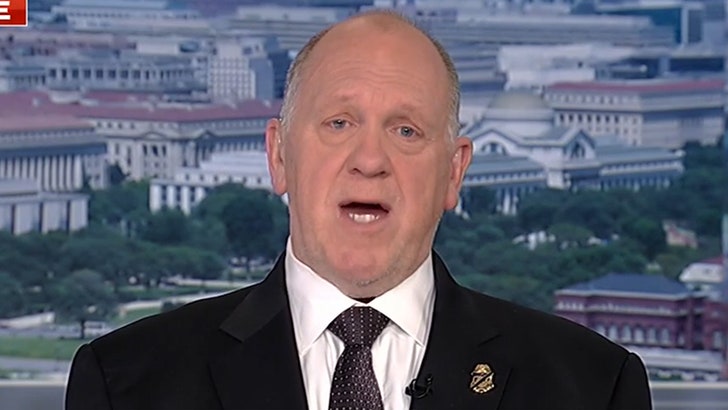Concerns Over UK Trade Deal: White House Response To North American Auto Industry

Table of Contents
White House Concerns Regarding Auto Industry Competitiveness
The White House has voiced significant concerns regarding the potential negative consequences of a UK trade deal for the North American auto sector. The primary worry centers around the increased competition and potential disruption to the existing economic equilibrium.
Increased Competition from UK Automakers
A key concern is the surge in competition from UK automakers. The removal or reduction of tariffs could significantly increase the volume of UK-manufactured vehicles entering the North American market. This influx could lead to a decrease in market share for American manufacturers, potentially resulting in job losses across the industry.
- Specific UK Auto Brands and Their Potential Impact: Brands like Jaguar Land Rover and Mini, already established in North America, could see a significant boost in sales, further intensifying the competitive landscape. The entry of other UK-based manufacturers could further exacerbate this situation.
- Tariff Implications and Their Effect on Pricing: Lower import tariffs would make UK vehicles more price-competitive, potentially undercutting American manufacturers and forcing them to lower prices to remain competitive. This could impact profitability and investment in research and development.
- Potential Loss of Manufacturing Jobs in North America: Reduced demand for domestically produced vehicles could lead to plant closures and significant job losses in the North American automotive manufacturing sector, impacting communities heavily reliant on these industries.
Supply Chain Disruptions
The existing supply chains for the North American auto industry are deeply interconnected. A UK trade deal could disrupt these established networks, creating significant challenges.
- Reliance on Specific UK-Sourced Components: Many North American automakers rely on UK-sourced components for their vehicles. Any trade friction or increased costs associated with sourcing these parts could lead to production delays and increased expenses.
- Complexities and Costs of Shifting Supply Chains: Diversifying supply chains away from the UK would be a complex and costly undertaking, requiring significant investment and time. This could put further pressure on already strained resources within the industry.
- Potential for Delays and Increased Production Costs: Disruptions to supply chains inevitably lead to delays in production and significantly higher costs, impacting the profitability of American automakers.
The Role of Labor Unions and Lobbying Efforts
Labor unions representing workers in the North American auto industry have played a significant role in voicing concerns to the White House. These unions have exerted considerable political pressure to ensure the administration considers the potential impact on their members.
Union Pressure and Political Influence
The influence of labor unions in shaping the White House's response to the UK trade deal cannot be overstated. Their lobbying efforts have been instrumental in bringing the potential negative consequences of the deal to the forefront of the political agenda.
- Specific Unions Involved and Their Arguments: The United Auto Workers (UAW) and other relevant unions have actively engaged in lobbying efforts, emphasizing the potential for job losses and the need for protective measures. Their arguments are focused on the well-being of their members and the broader economic impact on American communities.
- Lobbying Efforts to Influence Trade Negotiations: Intense lobbying efforts include direct engagement with White House officials, Congressional representatives, and public awareness campaigns designed to influence public opinion and policy decisions.
- Effectiveness of These Efforts on the White House's Stance: The pressure exerted by labor unions has undoubtedly influenced the White House's cautious approach to the UK trade deal, pushing them to consider the potential negative consequences for American workers and businesses.
Potential Mitigation Strategies and White House Solutions
The White House is likely exploring various strategies to mitigate the potential negative impacts of the UK trade deal on the North American auto industry. These strategies could involve influencing trade negotiations to secure beneficial concessions.
Trade Deal Negotiations and Concessions
The White House's strategy will likely center around leveraging its influence during trade negotiations to secure favorable terms for the North American auto industry.
- Negotiations Around Tariffs and Quotas: Negotiations might focus on maintaining or implementing tariffs and quotas on UK vehicles to prevent a flood of imports and protect the domestic market.
- Reciprocal Trade Agreements to Balance the Market: The White House could seek reciprocal trade agreements that ensure fair access for American automakers to the UK market, mitigating the potential imbalance created by the trade deal.
- Government Incentives or Subsidies for the US Auto Industry: Government incentives or subsidies could be considered to bolster the competitiveness of American automakers and support job creation within the sector.
Conclusion: Assessing the Future of UK Trade and the North American Auto Industry
The White House's concerns regarding the UK trade deal and its potential impact on the North American auto industry are significant. The potential for increased competition, supply chain disruptions, and job losses necessitates a cautious and strategic approach to these trade negotiations. Addressing concerns regarding job security and market competitiveness is paramount. The future of the North American auto industry is intertwined with the outcome of these trade negotiations. To stay informed about the ongoing UK trade deal impact and its potential repercussions on the North American auto industry future, it's crucial to follow the negotiations closely. Engage in further research on trade policy updates and contact your representatives to express your concerns. The future of this vital sector depends on proactive engagement and informed advocacy.

Featured Posts
-
 First Of Its Kind Ottawa And Indigenous Capital Group Partner For Next Decade
May 12, 2025
First Of Its Kind Ottawa And Indigenous Capital Group Partner For Next Decade
May 12, 2025 -
 Kritika Mirnogo Planu Trampa Pozitsiya Borisa Dzhonsona Ta Yiyi Vpliv
May 12, 2025
Kritika Mirnogo Planu Trampa Pozitsiya Borisa Dzhonsona Ta Yiyi Vpliv
May 12, 2025 -
 Possible Candidates For The Next Pope A Comprehensive Analysis
May 12, 2025
Possible Candidates For The Next Pope A Comprehensive Analysis
May 12, 2025 -
 Ufc 315 Muhammad Vs Della Maddalena In Depth Prediction And Odds Comparison
May 12, 2025
Ufc 315 Muhammad Vs Della Maddalena In Depth Prediction And Odds Comparison
May 12, 2025 -
 Thomas Muellers Bayern Legacy His Most Frequent Xi Teammates
May 12, 2025
Thomas Muellers Bayern Legacy His Most Frequent Xi Teammates
May 12, 2025
